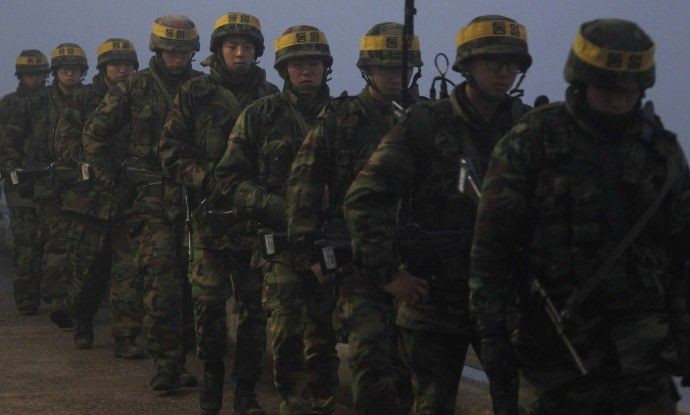South Korea begins live-fire exercises on Yeonpyeong Island, North alerts army

The South Korean military has begun live-firing exercises on Yeonpyeong Island, the country's defense ministry announced on Monday. Local residents were ordered to move into air raid bunkers ahead of the drills. The move comes at a time of heightened tensions in the region and constant threats of retaliation from the North.
The communist regime in Pyongyang blamed Seoul for provocation and warned of 'deadlier attacks' if the South decides to go ahead with live-fire drills in the Yellow Sea. The country's army has been put on alert.
Russia and China have already urged Seoul to refrain from conducting military exercises, stating that the drills could worsen the state of affairs in the Korean peninsula. The UN Security Council reportedly discussed the issue in New York, but failed to reach any agreement. The drills will be the first such maneuver on Yeonpyeong Island since last month's North Korea attack.
At least 20 U.S. military personnel are assisting South Korean forces and officials in Seoul maintained that the artillery guns to be used in the drill will not be aimed at the North. South Korea also claimed that the exercises are part of their general routine.
North Korean officials, last week, asserted that the attacks this time would be more lethal than that of last month's artillery shelling that killed two South Korean soldiers and two civilians. In an official statement by the North's military South Korea was threatened with 'second and third unpredictable self-defensive blows' if the drills are carried out. Pyongyang had also threatened nuclear assault in retaliation to any provocations by Seoul. Authorities in the North maintained that the earlier bombardment of the island came in response to the South's live-fire exercises.
Meanwhile, China stated that a clash between both Koreas could be a national tragedy and added that it could have devastating effects on regional stability.
© Copyright IBTimes 2025. All rights reserved.





















